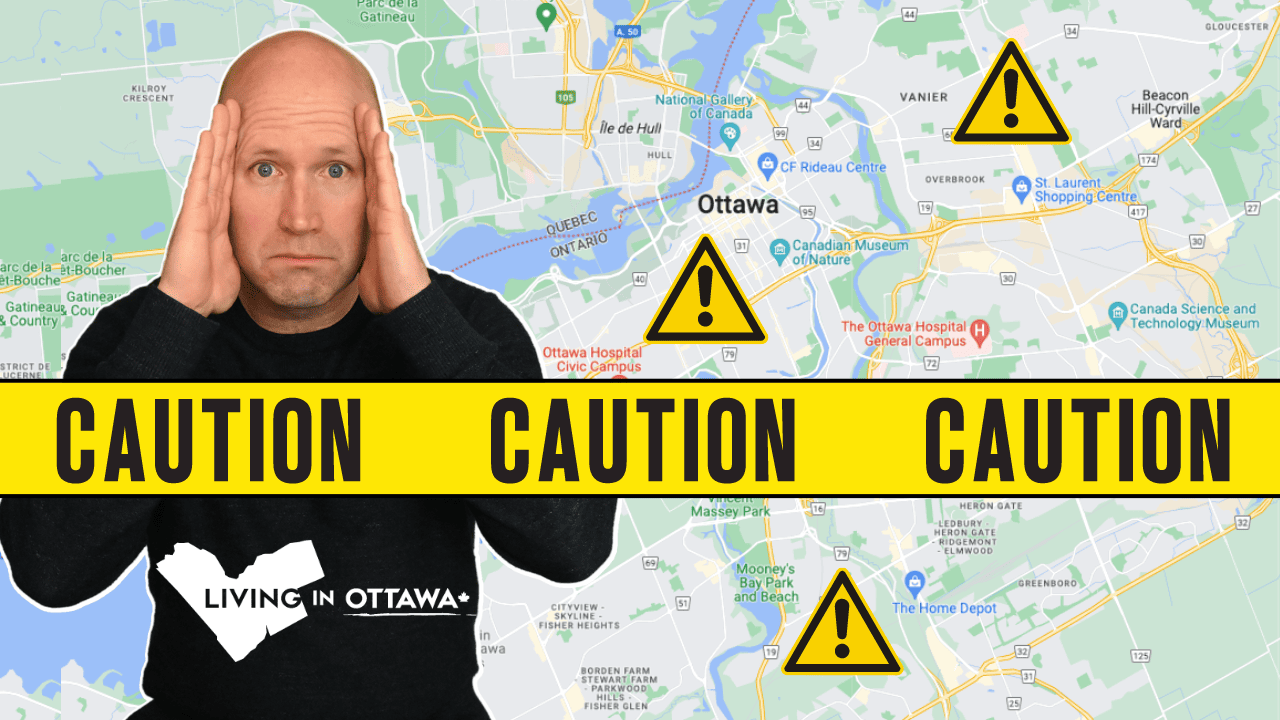Ottawa’s Main Employment Sectors
Moving to a new city can be intimidating, particularly when you need to find a job but understanding Ottawa’s Main Employment Sectors certainly provides greater clarity. It takes more than just looking through job postings and applying online; finding the best gigs requires reaching out to contacts in your field, researching and networking way beforehand. But not to worry – in this video, we’ll get you started by covering the largest employment sectors in Ottawa.
Ottawa is known as the nation’s capital, but what many people don’t know is how it’s also a major employment centre. The city houses four main sectors that provide job opportunities to thousands of Canadians: the public service, high-tech companies, health care, and the educational services industry. Each of these has its own unique flavour; whether you want to work with groundbreaking technology or build your career in the public service, Ottawa can provide something for everyone. The truth is you don’t have to be a politician to make a living in Ottawa – there are exciting and lucrative career paths available no matter what your interests may be!
As a precaution – in order to prepare the information for this video not all information was readily available or completely clear. For example, The Federal Government and the High Tech Industry tend to overlap we also find the same in the Education and Health Care sectors. I have pulled more prominent examples in each of these sectors to provide an idea for each.
Salary information is also very difficult to find for private companies – much of it comes from dubious sources. We will lightly touch on some perks from those companies – particularly well-known tech companies to give you an idea but please understand it’s not the same across the board.
For most public sector employers I’ve used Sunshine List stats, which report salaries over $100,000 CAD. Anything below this is not public information but yet again the information is inconsistent for different public and private industries so I will share what I can but please go easy on me in the comments area if your opinion differs. Without further ado – let’s dive into Ottawa’s top 4 employment sectors:
1. Federal Government
As the nation’s capital, it isn’t a surprise that the largest employer in Ottawa is the federal government. Over 120,000 people in the National Capital Region worked for Public Service Canada in 2020.
These positions support the functioning of the government at every level. The average salary for an employee of the Government of Canada is about $79,000 per year. Qualifications and salaries vary greatly depending on the position and its requirements.
In 2016, 19% of Ottawa’s workforce was employed in Public Administration. An administrative assistant may expect to make around $50,000 CAD while an attorney might earn $120,000 CAD. Employees in Government and Consumer Services include a large number of information technology positions, business consultants, financial analysts, supply chain project leads, and project managers all making over $100,000 CAD.
Though government jobs have a more rigid salary structure than private sector jobs, factors like experience and education are still major considerations.
Government jobs are highly desirable in Ottawa for a number of reasons. Benefits packages and salaries tend to be relatively generous and the jobs are somewhat more recession-proof than those in the private sector.
Federal government departments recognized as National Capital Region top employers include the Canada Revenue Agency, the Department of Finance Canada, the Communications Security Establishment (CSE), and the National Capital Commission.
The federal government also contributes to an enormous number of jobs outside of public administration. Government funding supports research and more in many areas of Ottawa’s employment sectors but it certainly overlaps into the three other main Ottawa employment sectors of high-tech, healthcare, and education.
Ottawa’s employment sectors all overlap to a significant degree. There are tech jobs in healthcare, government funded research positions in education, and healthcare jobs within the federal government.
It’s difficult to completely separate the sectors. The best way to think about Ottawa’s job market is that it is vast and interconnected matrix. Both public and private employers seek highly qualified employees of all kinds.
Provincial Government also accounts for a good size of the employment pie here in Ottawa.
And at the municipal level, The City of Ottawa is also a major employer, with almost 20,000 full and part time employees. Working for the city comes in many forms. Positions from parking control officer to accounting coordinator earn around $100,000. Higher level managerial positions may earn well over $200,000.
Hey if this video is bringing you value and helping you in anyway please help US by clicking that like button to tell the YouTube algorithm we are doing a great job!
2. High-Tech
There are hundreds of tech companies in the Ottawa area, employing thousands of people. These range from small 1-2 person companies to well over 1,000 employee organizations.
Quite a bit of the tech industry is connected to the federal government in some way. Life sciences tech, which employs about 6,000 people, is funded to the tune of $380 million a year by university-affiliated research institutions. The Ottawa Hospital, Ottawa Heart Institute, and The Children’s Hospital of Eastern Ontario are all major employers in both the tech and health sectors.
Other government supported tech includes everything from telecommunications (the Communications Research Centre) to clean energy (Environment and Climate Change Canada). There are 65 government research labs in Ottawa.
Non-government tech companies also have a large presence in the Ottawa-Gatineau area. From software giant Shopify to Nokia, IBM, Adobe Systems, and a host of start-up tech companies, estimates are that over 74,000 people work in Ottawa’s tech sector.
There is a strong connected and autonomous vehicles (CAV) presence with over 20,000 employees. The largest tech park in Canada, Kanata North Technology Park, is home to over 500 companies employing over 20,000 people. According to CBRE Tech Talent 2021, tech industry jobs account for 11.6% of the city’s employment, making it the highest concentration of any city in North America.
Salary expectations within the tech industry vary widely. But the concentration of high level R&D (Research & Development) in Ottawa means opportunities for highly trained software engineers, developers, and niche-specific researchers. Many tech companies make an appearance on the top 100 employers list for 2022. We’ll leave a link in the description below.
https://canadastop100.com/ottawa/
Shopify is the largest public company in Canada, employing nearly 6,000 people across the country. The company offers a generous health plan, mental health coverage, tuition subsidies, training, and flexible work schedules.
Adobe Systems Canada employs over 300 Ottawans. It offers generous paid time off, tuition subsidies, and very flexible hybrid work schedules. Smaller employers like Tehama Inc., a software company, make their mark with benefits like flexible time off and a share purchase plan.
It’s no surprise that Ottawa is a hotbed for tech companies – from database development to app creation, these are the powerhouses that make Ottawa a global leader in technological advancement. Hence the name that was given to Kanata as Silicon Valley North. As seemingly new and strange startups keep popping up, one thing remains constant: Ottawa’s tech industry continues to lead the pack with its unique blend of creativity, innovation, talent and drive.
3. Health Care
As well as supporting a robust life sciences tech industry, Ottawa’s three major hospitals and their satellite clinics employ thousands of health care workers. The Ottawa Hospital employs over 6,500 Ottawans in full-time positions. An additional 5,000 people work for the institution in part-time positions.
The Children’s Hospital of Eastern Ontario (CHEO) employs over 2,000 individuals in full-time positions as well as over 1,000 in part-time jobs. An occupational therapist at CHEO could expect to make over $39 an hour in 2022.
Positions earning around $100,000 CAD per year include clinic managers, pharmacists, and registered nurses. Staff physicians may make $200,000 CAD per year or more.
Salaries vary widely based on experience, training, and position of responsibility. Managers, social workers, and service technologists can all make over $100,000 CAD per year. High level executive positions may earn upwards of $300,000 CAD.
At the University of Ottawa Heart Institute, you’ll find over 1,500 employees. Doctors, nurses, allied health professionals, researchers, and more fill the ranks of this prestigious institution.
The Heart Institute is Canada’s largest cardiac care and research facility. Salaries are generally similar to those at CHEO. Employees from systems analysts to sonographers make over $100,000 CAD.
Ottawa is home to seven general care hospitals and five specialty care hospitals. In 2016, 22% of Ottawa’s workforce was employed in the health and education sectors.
Ottawa is a city that loves to work hard and play hard. It has a thriving life sciences technology industry, built around three major hospitals and their extended network of satellite clinics. Not only do these institutions provide amazing care to the public, they also employ thousands of dedicated health care professionals – giving Ottawa’s working population an extra wellness boost. They’re like the multi-vitamins or green juice of Ottawa’s job market – needed for sustaining long-term flavour and health. As one satisfied patient put it: “Ottawa knows how to take care of itself!”
4. Education
Ottawa’s citizens are well-educated for a reason and it also happens to make the cut of Ottawa’s Main Employment Sectors as well. The National Capital Region is home to two public colleges and two public universities. You’ll also find specialty schools including the Canadian Police Academy and a branch of the storied Le Cordon Bleu Cooking School.
Community colleges include Willis College, specializing in skills training in business, healthcare, and technology.
Colleges and universities, along with the area’s myriad public primary and secondary schools, employ teachers, teaching assistants, professors, researchers, and many more.
The University of Ottawa is a major bilingual research centre with over 35,000 undergraduate students. The largest of Ottawa’s higher learning centres, the University employs over 5,000 full-time and 6,000 part-time workers. It has a graduate rate of 97%, sending thousands of talented employees into the workforce every year.
Due to its 40 research facilities, the University of Ottawa draws extensive outside funding, much of it from the federal government. In 2017, faculty members received, on average, almost $250,000 CAD of sponsored research income.
Full professors often make over $200,000 CAD at the University of Ottawa, with assistant professors making closer to $150,000 CAD.
Carleton University is also a major research centre. This English language institution offers 65 degree programs to its 27,000 undergraduates. Faculty members generally make between $100,000 CAD and $200,000 CAD per year. Carleton has more part-time employees (around 4,500) than full-time (around 2,500).
Algonquin College of Applied Arts and Technology’s primary campus is in Ottawa. Another top research institution, it has a reputation for innovation. Its 19,000 students choose from 180 programs including public safety, nursing, and interior design.
An impressive 93% of Algonquin graduates go on to work in their field of study. Faculty seems to make slightly less than their counterparts at the University of Ottawa and Carleton, with salaries often around $100,000 CAD. Algonquin has over 1,300 full-time and about 2,100 part-time employees.
Established in 1990, the Collège La Cité is the largest French-language college in the province. With about 5,000 full-time students, it offers 90 degree programs. Over 500 people work full-time at Collège La Cité, with another 650 part-time employees.
It’s professors earn about the same as those at Algonquin College: slightly over $100,000 CAD.
Colleges, universities, and other schools in Ottawa also employ countless support staff. From teaching assistants to counselors and administrative staff, these institutions offer employment to thousands of Ottawans. The four public colleges and universities were all recognized as top employers in 2022. Together, they employ over 22,000 people.
It’s clear why so many people have chosen to plant their flag in this beautiful city – it provides an ideal environment for learning. Although Ottawa often gets overshadowed by bigger cities like Toronto and Montreal, its education sector is so established and powerful that it is a major employer in itself! Luckily for its citizens, Ottawa is regularly ranked among Canada’s best places to live – which means that good education comes with all the amenities of a good home base.
Ottawa has a very educated workforce and the city is filled with educational institutions. Unemployment is low and the economy is stable, with higher average salaries than most Canadian cities. Despite the outsized presence of the federal sector, living in Ottawa is known for its outstanding work/life balance. The average salary in the city was $128,000 in 2022.
Making connections with people in the city’s industry hubs is an important tool when it comes to landing a job, as well as researching companies and researching potential employers before any interviews. Looking for local mentorship programs or joining a mixer or meet-up group are also effective ways of building your network so that you can position yourself better when searching for employment. No matter how difficult it may seem, being proactive and jumping right in will give you the best chance of securing meaningful work once you’ve relocated or even before you make the big move.
Speaking about relocating – if you are thinking about moving to Ottawa feel free to reach out to us. Give us a call – shoot us a text – send us an email – or even wrap it in a bow and send it first class because we got your back when moving to Ottawa or anywhere across Canada. And each and every week we are bringing brand new videos just like this one so make sure to tap that subscribe button and click the bell so you are notified each and every time we drop a brand new video. Until next time – take care!
Ottawa’s Main Employment Sectors




